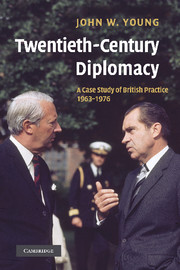Book contents
4 - Resident ambassadors
Published online by Cambridge University Press: 30 June 2009
Summary
Above all things an Ambassador must endeavour to acquire great consideration, which is obtained by acting on every occasion like a good and just man; to have the reputation of being generous and sincere … and not to be regarded as a man who believes one thing and says another.
Niccolò MachiavelliMachiavelli's advice, given to Raffaello Girolami on the latter's departure to become ambassador at the court of Charles V in Spain in October 1522, may seem odd in light of the Italian's reputation as an exponent of realpolitik, and it stands in sharp contrast to Henry Wotton's infamous description of an ambassador as ‘an honest man sent to lie abroad for the good of his country’; but it is easily forgotten that the author of The Prince, like other great literary figures such as Geoffrey Chaucer and Philippe de Commynes, spent part of his career as a diplomat and knew that envoys could not build success on the back of dishonesty. Humphrey Trevelyan, one of Britain's most successful post-war ambassadors, emphasised to junior staff the need for honesty in dealings with both their own government and those to which they were accredited; any diplomat who tried to fool others would soon forfeit their respect and lose their confidence. Truth was also the first of the seven qualities Harold Nicolson wanted to see in his ‘ideal diplomatist’, the others being accuracy, calm, patience, good temper, modesty and loyalty.
- Type
- Chapter
- Information
- Twentieth-Century DiplomacyA Case Study of British Practice, 1963–1976, pp. 59 - 86Publisher: Cambridge University PressPrint publication year: 2008



